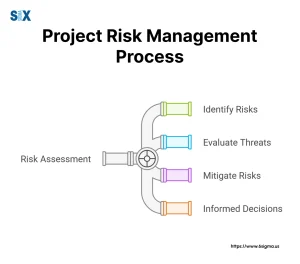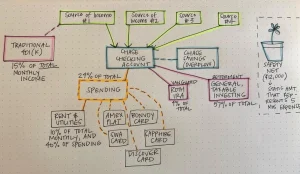
Let’s be honest—keeping track of money isn’t exactly thrilling. Budgeting feels like homework, investing seems like a gamble, and saving? Well, life happens. But here’s the deal: artificial intelligence is quietly rewriting the rules of personal finance. It’s not just about spreadsheets anymore. AI is making money management smarter, faster, and—dare we say—almost effortless.
AI-Powered Budgeting: Your Personal Finance Coach
Remember when budgeting meant manually categorizing receipts or guessing where your paycheck disappeared? AI tools like Mint and YNAB now analyze spending patterns automatically. They spot that sneaky $8 latte habit or the subscription you forgot to cancel. Some even nudge you with messages like, “Hey, you’ve spent 30% more on dining out this month.” It’s like having a financial therapist in your pocket.
How It Works
These apps use machine learning to:
- Categorize transactions (no more “miscellaneous” black holes)
- Predict cash flow based on past behavior
- Adjust budgets dynamically—because surprise car repairs happen
AI in Investing: From Wall Street to Your Pocket
Gone are the days when stock picking was a guessing game. Robo-advisors like Betterment and Wealthfront use algorithms to build and rebalance portfolios. They consider your risk tolerance, goals, and even tax implications. The best part? No minimum balances or stuffy financial advisors.
And then there’s algorithmic trading. AI analyzes market trends at lightning speed, spotting opportunities humans might miss. Sure, it’s not foolproof—but neither was your uncle’s “hot stock tip” at Thanksgiving.
The Numbers Don’t Lie
| Traditional Advisor Fees | 1-2% of assets |
| Robo-Advisor Fees | 0.25-0.50% |
| Average ROI Difference | Negligible (sometimes AI wins) |
Fraud Detection: AI as Your Financial Bodyguard
Ever gotten a fraud alert for a purchase you didn’t make? That’s AI at work. Banks now use neural networks to detect anomalies—like a sudden splurge in another country or an odd ATM withdrawal. It’s not perfect (sometimes your legit vacation triggers panic), but it’s saved billions.
Fun fact: AI systems can analyze 5,000 transactions per second. Try doing that with a human team.
Credit Scoring Gets a Brain Upgrade
Traditional credit scores are, frankly, outdated. They ignore things like rent payments or steady income. New AI models—called alternative credit scoring—factor in your Netflix subscriptions, education, even social media behavior (creepy? Maybe. Effective? Definitely).
Startups like Upstart claim their AI approves 27% more borrowers than old-school methods—with lower default rates. That’s a game-changer for freelancers or young adults building credit.
The Future: Hyper-Personalized Finance
Imagine an AI that knows you’re saving for a wedding next year, so it automatically shifts spare change into a high-yield account. Or one that negotiates your cable bill while you sleep. We’re not there yet—but close. Companies like Copilot already offer eerily accurate spending forecasts.
The catch? You’ve got to trust the machine. And maybe check in occasionally… you know, just to feel involved.
So here’s the thing: AI won’t magically fix bad money habits. But it turns personal finance from a chore into something that—dare we say—feels almost intuitive. And in a world where money stress keeps millions awake at night, that’s not just convenient. It’s revolutionary.








